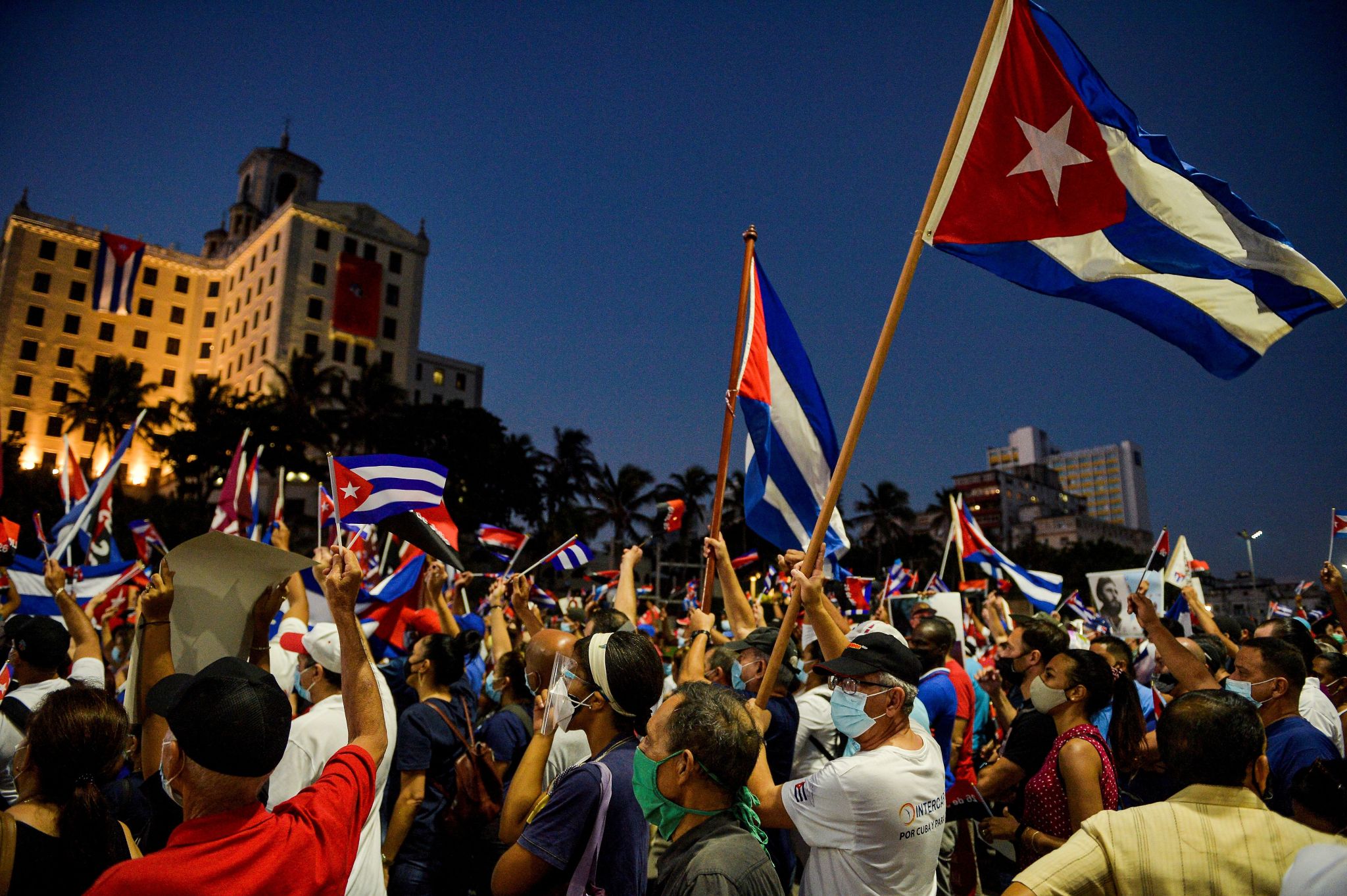
One month ago today, spontaneous protests erupted across all of Cuba. Citizens stood up against the government’s mismanagement of the pandemic, the terrible economic crisis, food shortages, and constant repression. Above all, people were demanding a fundamental change in the political system. The protests started in Artemisa, a province close to Havana not known for citizens’ activism. You could hear people chanting “freedom,” “We want vaccines,” and “homeland and life,” along with slurs against President Diaz-Canel.
What happened on July 11 was historic. Cubans shed their long-existing fears and launched the largest protests since the famous 1994 Maleconazo, when Havaneros took to the streets to protest the government’s policies that had led to an economic crisis, also caused by the fall of the former Soviet Union. The difference between those protests and the recent ones is that the former were only in Havana. Those registered on July 11 happened across Cuba, totaling approximately 120 documented protests in one day and over 200 in all.
As protesting increased, new social actors became involved, including youth who were usually apolitical and apathetic, and the use of social media and access to internet became key for the spread of information. With the rapid increase in protests and international media coverage, the Cuban government immediately blamed the US for the protests, claiming that organizations supported by US agencies were behind this uprising. Further, President Diaz-Canel called for government supporters to confront the protestors and defend the Revolution.
The safety of those Cubans raising their voices and leading efforts advocating for freedom continues to be threatened by the government’s attempts to stifle progress. Since July 11, the Cuban government has arrested anywhere from approximately 800 to 1,000 citizens, including activists and journalists whose whereabouts remain unknown. Current detainees include prominent leaders like activist Jose Daniel Ferrer and artist Luis Manuel Otero Alcantara. Other citizens with lower profiles, including minors, have experienced short detentions. And while the protests have continued, though very limited given the government repression, getting information from the island has become a challenge. The government has restricted the access to internet, mainly sites such as Facebook and YouTube and apps like Telegram and WhatsApp, which have been the primary way citizens have shared their videos and information.
In terms of regional interest, Latin America has been somewhat quiet, but the usual suspects, Nicaragua, Venezuela, and Argentina, have expressed their support for the Cuban regime. Nonetheless, the international community (including historic Cuban allies such as Spain) remains supportive of Cuban protestors. US bipartisan efforts continue to help the Cuban people regain their freedom, including through initiatives to reinstall access to internet and send humanitarian assistance to alleviate food shortages and the economic and health crises that Cubans are experiencing.
In the face of Cuba’s new political dynamics, IRI continues to support human rights and democracy in Cuba. It is imperative that the international community maintain their support of the efforts of these valiant citizens who are risking their lives daily for the sake of freedom. One month ago, Cubans showed incredible courage by deciding to speak out despite what harm might come to them, now onlookers must take on a similar courage and stand firmly with the people of Cuba.
Top